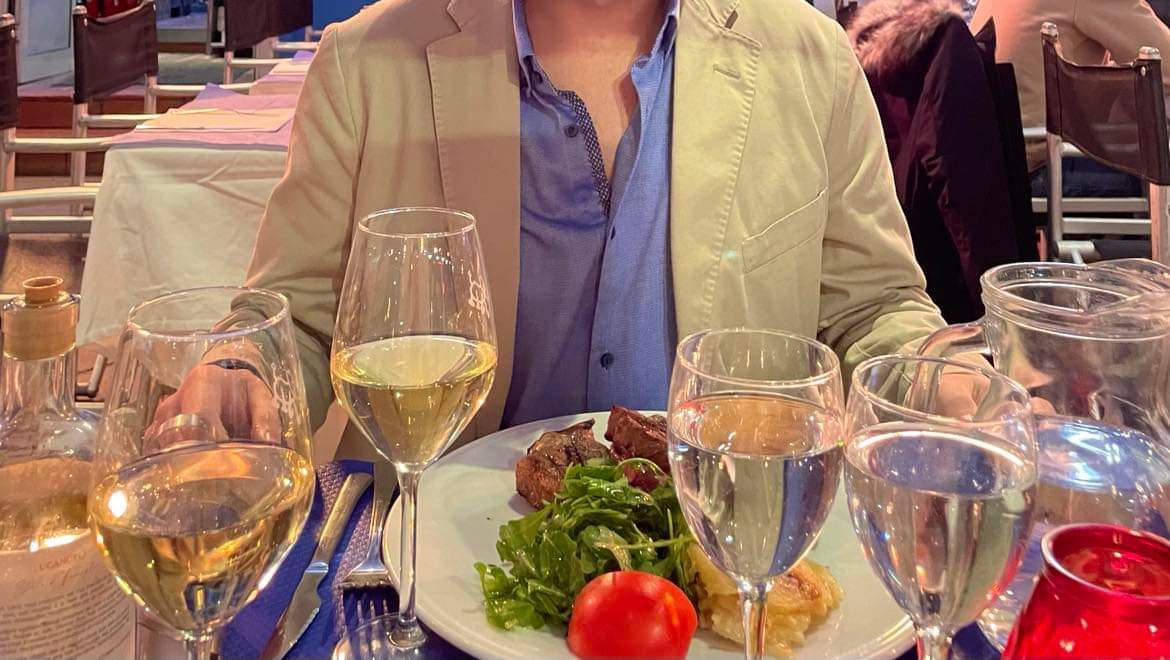Overview:
‘After days of sending teasing and flirty messages, you find yourself on a long-awaited first date with that charming someone... The question looms: who’s paying?‘
After days of sending teasing and flirty messages, you find yourself on a long-awaited first date with that charming someone. The atmosphere is filled with laughter and giggles, and there’s a magnetic exchange of coy looks expressing mutual desire. As you take a sip from your martini, you catch a glimpse of his reflection in the cocktail glass. Sharing a delicious pizza, your fingers accidentally brush against each other while reaching for the final slice. Playfully insisting that the other should have it, you create a lighthearted moment of connection. Effortlessly, an hour slips away, and the waiter finally arrives with the bill. As you feel a solitary bead of sweat roll down your brow, you realise you’ve reached the inevitable dilemma. The question looms: who’s paying?
This scenario brought back fond memories of my first date with my now-boyfriend, albeit without the cocktail. Our first date took place at a cosy pizzeria in London, and after a few hours of high-spirited conversation, this idea of who would foot the bill crossed my mind. At the time, I was having issues with my debit card, so I only had cash. Since it was enough to cover the bill, I insisted that I pay. Unfortunately, this power-trip of mine lasted no longer than a couple of seconds when I soon discovered that the restaurant only accepted cards. Score: 1-0 to my boyfriend, who ended up paying by default. While I was mildly annoyed that I couldn’t treat him, there was a part of me that appreciated his gentlemanly gesture.
Reflecting on this, I realised that before my current relationship, I hadn’t given much thought to this dynamic. In my previous two-year relationship during sixth-form with another girl, our circumstances were certainly different; we were hardly in a position to spoil each other with more than £10 at 16 years old. Yet, I remember finding myself in situations where I would be the likely one to pay. In our lesbian relationship, I was considered the “man”, mostly due to the way I dressed. Despite the fact that the whole point of a lesbian relationship is that there is no man, societal expectations often nudged me into the traditional boyfriend role without me even realising it. When we would go out for lunch, I felt it was only right that I paid, playing the role of the boyfriend. And while we would occasionally go Dutch, it was driven not by societal expectations but due to financial necessity.
In my current relationship, I find myself on the other side of the traditional dynamic as the “girlfriend”. Except for holiday accommodation fees, I can’t recall a single instance where my boyfriend and I split the bill – and no, it’s not because he pays for everything! Throughout our whole relationship, we’ve established a pattern of taking turns paying for dates or drinks, often determined by who can reach the card machine first. It’s evolved into a friendly competition of trying to out-spoil each other, with playful bargains like “if you get lunch, then dinner’s on me” or “if dinner’s on you, then I’ll have to get you a cocktail!”. Even seemingly small gestures, like buying coffee, become tokens of affection.
While men often subscribe to modern chivalry as a form of being courteous or kind, there is definitely something to be said about the history of chivalry. It’s certainly off-putting to think of traditional chivalry as charming when women were historically considered to be the property of men, using tactics like footing the bill as a form of asserting dominance over women. When you have no financial dependence on your own, this type of chivalry ends up seeming patronising, as if to rub it in your face that women allow men to pay for their meal — simply because they would never have had another choice. Thankfully, with times changing, there is definitely room to adapt chivalry to modern day dates, being spoiled because you allow yourself to be rather than because your company as a woman is all you can offer.
Of course, there are times when my boyfriend has covered more expenses, especially considering my pocket money from tutoring versus his income during his gap year. However, I am committed to ensuring that he always has the opportunity to feel just as loved when it comes to our dates. I believe that, even in non-heterosexual relationships, I would approach this dilemma in the same way if financial circumstances were different with my ex-girlfriend. It’s about equality, shared affection, and creating a relationship that transcends traditional expectations.
While the overall amount we spend on each other may roughly equal out if we were to split the bill for everything, it’s the sentiment that truly matters. Knowing that we both have countless opportunities to spoil each other takes the pressure off conforming to societal expectations. I would never expect my boyfriend to foot the bill for everything, nor would I allow him to. By opening up the playing field, allowing both of us to have a chance at being spoiled, our relationship becomes more fulfilling because it isn’t bound by archaic rules. That is not to say that men paying for dates isn’t compatible with feminism; rather, feminism should allow for men to also enjoy the princess treatment.
As for first dates, perhaps it’s as simple as seeing who can reach the card machine first!

